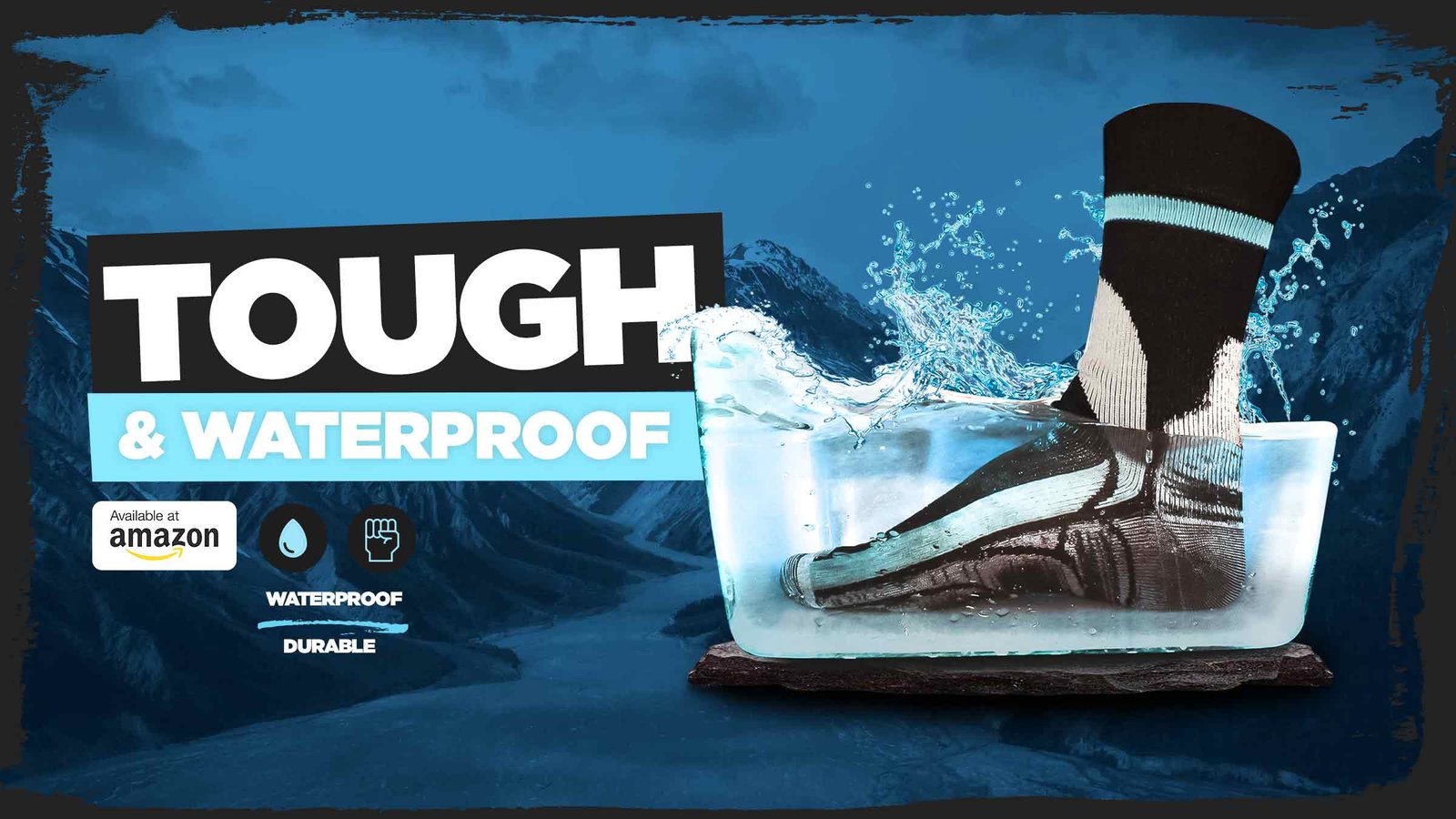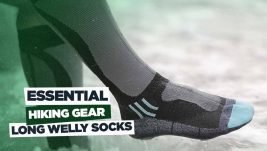Why are My Feet Always Cold?
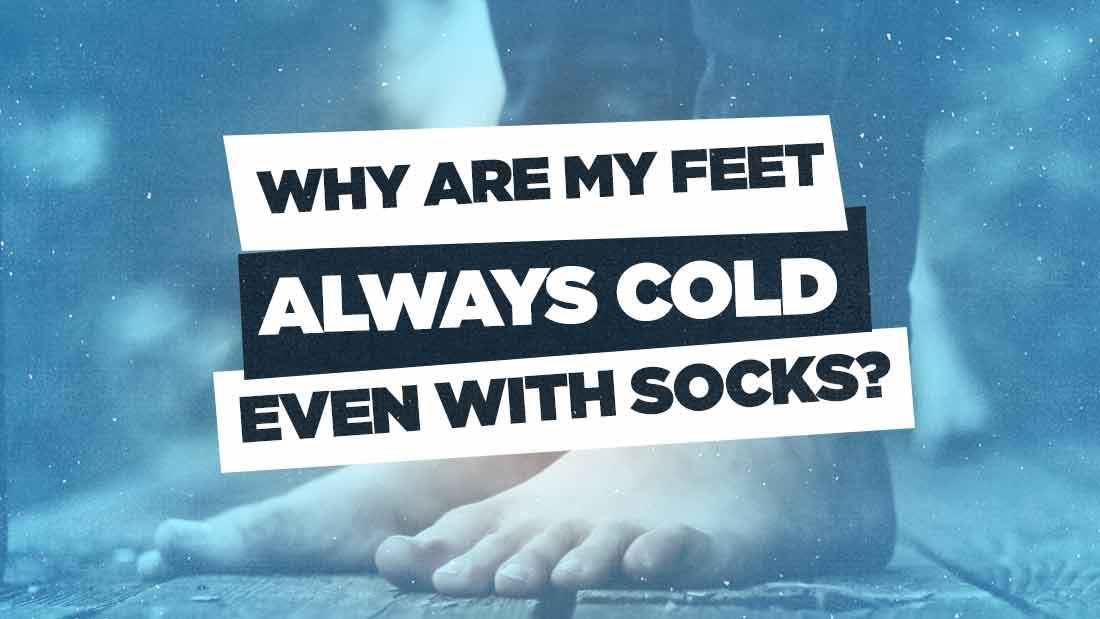
Contents
Having cold feet doesn’t only refer to the jitters you felt before walking down the aisle on your wedding day.
Some people have literal cold feet that may even feel cold to the touch.
“Cold feet” is a perfectly normal occurrence that you may experience from time to time and could be the result of various factors.
This could range from anything like a medical condition that might compel you to see a doctor to other routine reasons that you probably shouldn’t sweat over.
So, if you’ve ever wondered: Why are my feet always cold even with socks? This post should give you a good idea of why that is so.
What is the Cause of my Cold Feet?
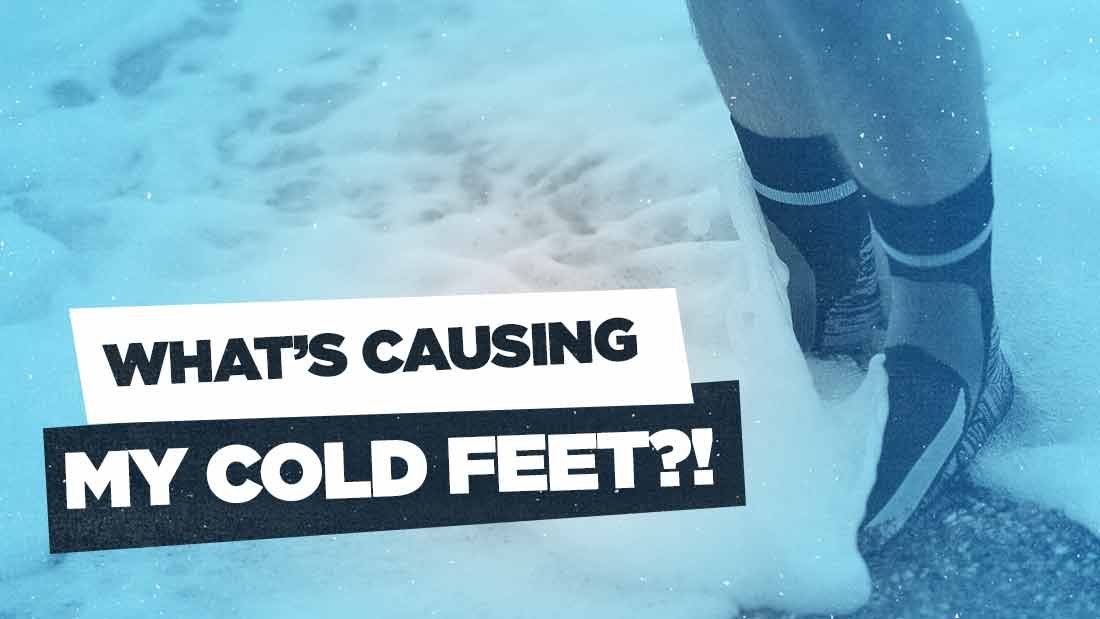
There are various reasons why your feet are cold. The simplest explanation is a lack of warmth that could easily be solved by covering up. However, other causal factors will require you to seek medical attention.
Now don’t read this list thinking it’s definitely something serious, because 99% of the time it will be something simple such as a mineral deficiency, not covering up properly, or even just a lack of food; as the energy burnt from processing food helps maintain your body temperature.
Low Temperatures
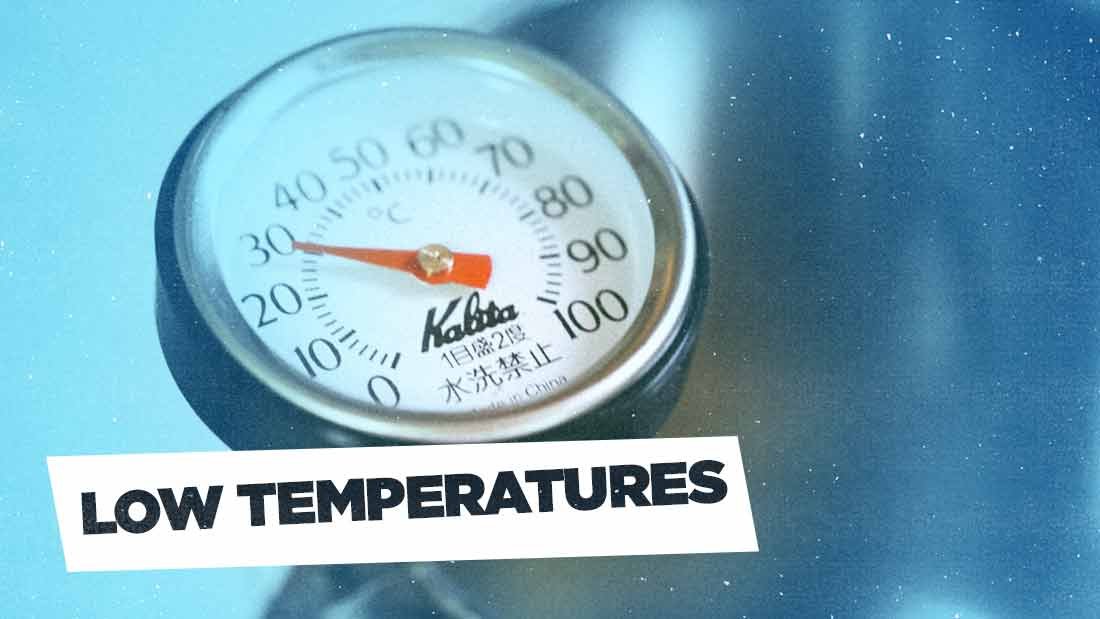
Cold feet are one of the ways your body will normally react to cold temperatures. When you reside in a cold region, blood vessels, especially those in the feet and hands, will constrict. This implies that there’ll be less blood flowing to these areas and hence less heat reaching them.
Reducing blood flow to the extremities like your feet helps your body to manage heat loss and keep the vital organs warm. However, continued reduced blood flow will also cause decreased oxygen supply in these tissues, which may turn them into a bluish color.
Fortunately, these symptoms are usually not a big cause for concern, and the body regains its normal warmth as the temperatures rise again.
Anxiety or High Stress
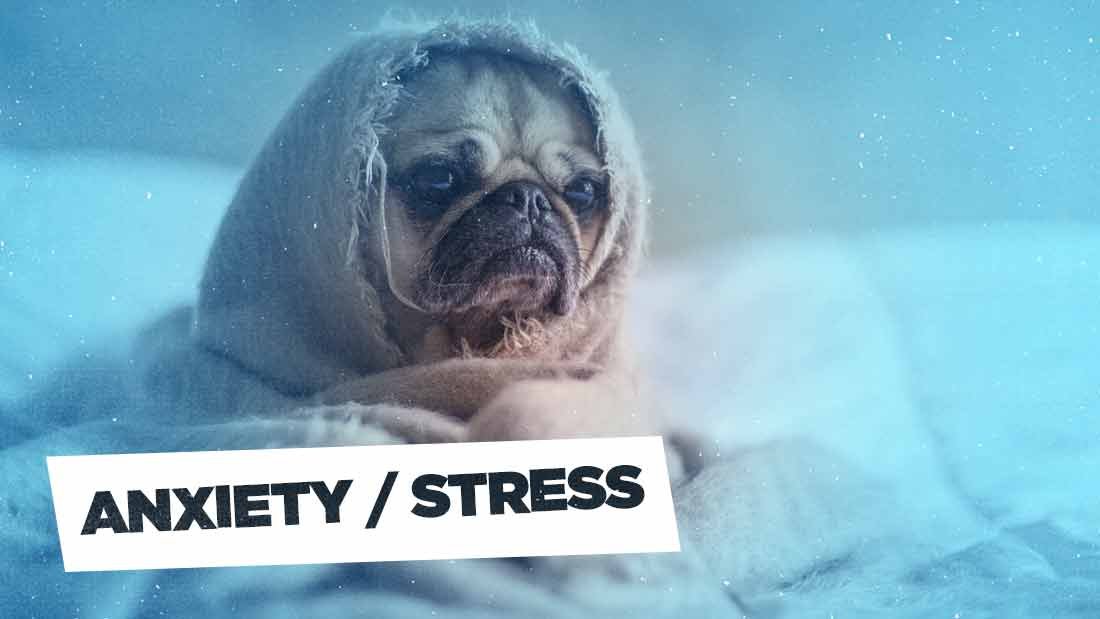
Having high levels of stress or anxiety can also lead to cold feet. One way that the body reacts to nervousness or stress is to release adrenaline into the bloodstream. The presence of adrenaline in the bloodstream ensures that blood vessels at the periphery constrict, reducing blood flow to areas such as the hands and legs.
This serves to reserve energy in the body in preparation for any bodily harm that may befall you in light of the high-stress situation.
As explained above, this also leads to a reduced supply of warmth.
Given the high level of stressors in the modern world, it should not surprise you when you experience cold feet every once in a while. It’s just your body’s natural reaction to your anxiety!
Circulation Issues
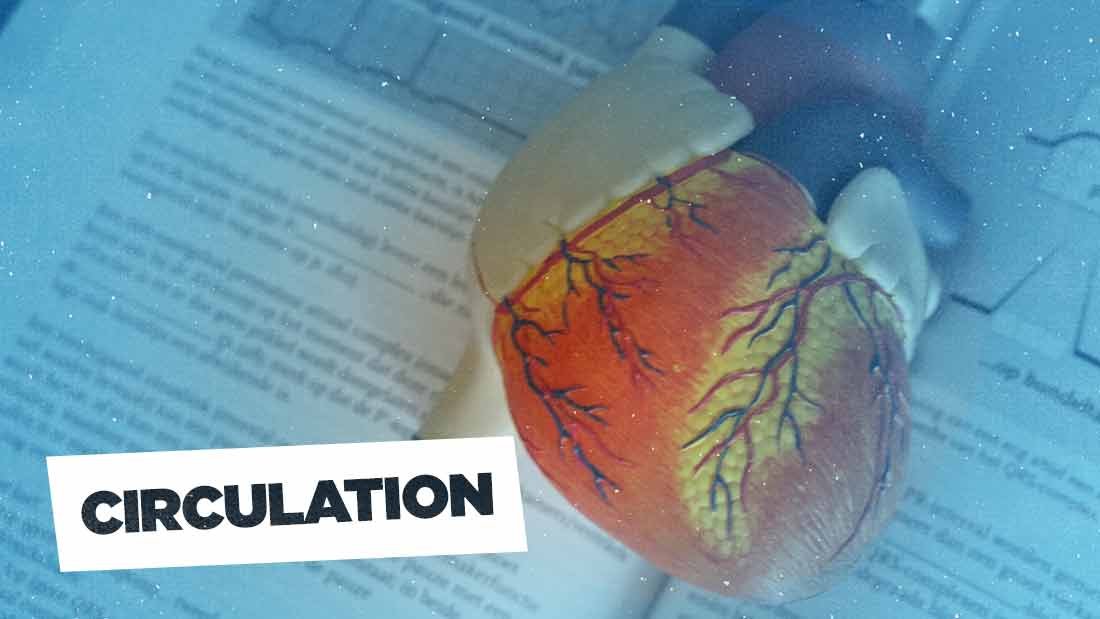
Sometimes, inadequate blood circulation can also cause cold feet.
People experiencing poor circulation in their bodies will often struggle to supply enough warm blood to the peripheral tissues. As a result, they tend to complain about cold feet and hands frequently.
Poor circulation may result from living a generally sedentary life. For instance, if you sit at a desk and work on your computer all day, this may diminish blood circulation to the feet.
Another common reason is smoking tobacco or related products. Chain smokers will always complain of cold feet because normal blood circulation in the body has been hampered by their habit.
High cholesterol can also lead to the emergence of plaques inside the arteries that may reduce circulation, as well as some heart conditions. These are factors that will generally force you to schedule an appointment with a physician.
Anemia

This is a medical condition that involves having very few normal blood cells in the body.
It results in less blood, and hence less warmth being carried around the body. Anemia may come as a consequence of a deficiency in minerals such as vitamin B12, iron, and folate or even chronic kidney disease.
Cases of moderate to chronic anemia may cause cold feet, however, this will normally respond well to diet adjustments and even supplements. It is wise to have your anemia diagnosed by a physician before you start following the recommended remedies.
Diabetes

People with diabetes are also vulnerable to circulation issues that will lead to cold feet and hands. Recurring high blood sugar levels may cause the arteries to narrow, reducing the supply of blood to the tissues.
In some cases, diabetes may end up causing diabetic peripheral neuropathy- a type of nerve damage. This is quite common among people who have an unregulated high blood sugar level that lasts for a long time.
Further symptoms that may result from diabetic nerve damage may include a prickling or tingling sensation, as well as a burning pain in the legs and feet. These become more pronounced at night!
Nerve Disorders
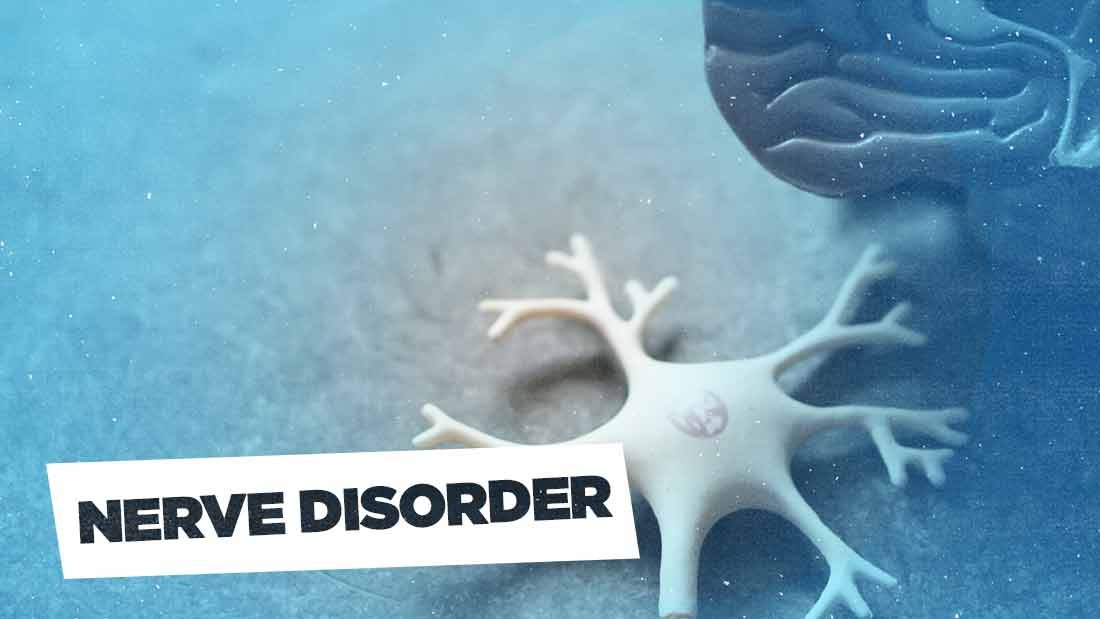
Other forms of nerve disorders may lead to cold feet, for example peripheral nerve disorders. These will include nerve damage that has been caused by injury or trauma such as severe frostbite or an underlying medical condition.
Peripheral neuropathy may also be the result of kidney or liver disease, infection, and even genetics. Treating symptoms like cold feet will go a long way to reduce the level of discomfort as you wait for a proper diagnosis.
Hypothyroidism

Hypothyroidism is the result of an underactive thyroid gland which leads to the low production of the thyroid hormone. This often has a negative effect on the body’s metabolism.
Metabolic activities such as blood circulation, heartbeat, as well as any other thing that impacts the thyroid function, which leads to cold feet. Patients suffering from hypothyroidism tend to be more sensitive to cold temperatures in general.
They may also experience symptoms like weight gain, fatigue, and memory loss.
Raynaud’s Syndrome

This is a condition that may occur either on its own or alongside an autoimmune disorder like rheumatoid arthritis or lupus. Those with Raynaud’s syndrome experience blood vessel spasms that lead to cold, numb, and discoloured feet and hands.
Pregnancy

It’s not unusual for women to have cold feet in the course of their pregnancy! This may be a consequence of several factors. For example, changes in hormonal levels may affect the autonomic nervous system, which will, in turn, affect blood circulation to the lower extremities.
Also, a higher basal metabolic rate experienced during pregnancy can be the cause of cold feet. Given the slightly elevated temperature, the air around, especially in the lower extremities, may feel cooler than normal.
Nausea and morning sickness with vomiting can also put the body into a negative nitrogen balance, making you feel cold. Hormonal level changes during pregnancy, especially thyroid hormones, is another cause of an under active thyroid gland that causes cold feet.
What Can I Do to Treat My Cold Feet?
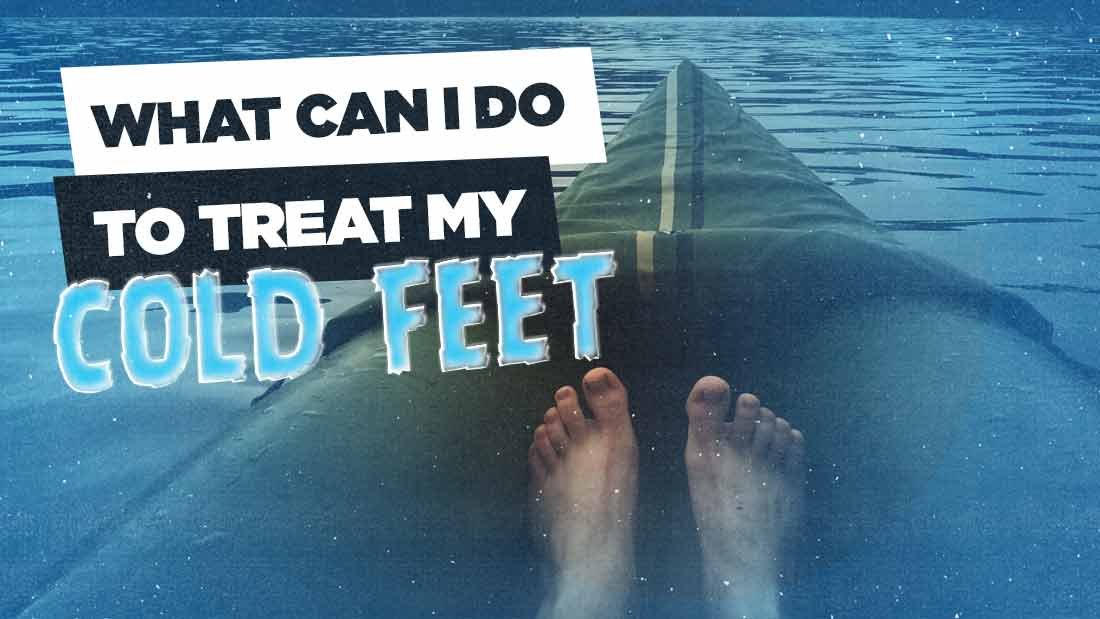
Now hopefully the above factors may give you some answers to the question of why are my feet always cold even with socks.
However, cold feet are a symptom that should best be treated after diagnosis by a qualified physician, especially if you’re not sure what the underlying causal factor is.
Nevertheless, there are several home remedies that you can use to manage the discomfort before your appointment falls due:
Constant Movement
As simple as it may sound, getting up and being constantly on the move is one of the easiest ways of warming your body and treating cold feet.
Some people experience cold feet because of their overall sedentary life, whether by choice or the career they are in.
Answering the question of why are my feet always cold even with socks could be as simple as becoming less sedentary.
Making the effort to enhance your blood circulation using cardio activities such as golfing, kayaking, walking, running, cycling, jumping, and other physical exercises will assist to keep your feet warm throughout the day.
Slippers and Socks
Donning a pair of warm and well-insulated slippers or thermal socks is a great way of managing your cold feet. These will come in handy whenever you’re indoors, especially for a person who doesn’t have heated or carpeted floors.
Keeping your feet bundled up at all times will assist to maintain their warmth and prevent any extra heat loss.
Now here at ArcticDry we obviously produce Triple Layered, Waterproof Socks; and these are the perfect companion if you have cold feet or want some extra protection while hiking, cycling, running or any other activity infact where cold water could ruin your day and accentuate your cold feet condition.
Foot Baths
Another quick and easy way of treating your cold feet is by soaking them in warm water.
Filling a basin or bathtub with warm water then soaking your feet for about 15 minutes may be a good way to keep your blood flowing to the feet for the rest of the day.
This will be very helpful before bedtime since it can also ease tension, as well as relax the muscles. Individuals suffering from diabetic nerve damage should, however, avoid using this method as they may not be in a position to tell whether the water is too hot or not, which can lead to accidental burns.
Heating Pads
If you’re having trouble sleeping at night because of cold feet, placing a heating pad below the bed will help to keep the region surrounding your feet warm and ease the discomfort.
Heating pads may also prove useful when you want to relieve sore muscles after spending a good measure of your day standing.
Conclusion
The next time you ask yourself why are my feet always cold even with socks, there is a high likelihood that it’s because of one of the reasons mentioned above. There are various ways or treatments that you can adopt to reduce the discomfort caused by your cold feet.
Ultimately, the best solution would be to get a proper diagnosis from your doctor and follow the relevant treatment method for effective and lasting results.



